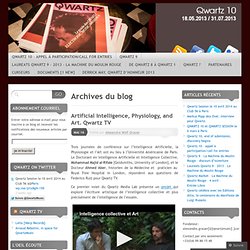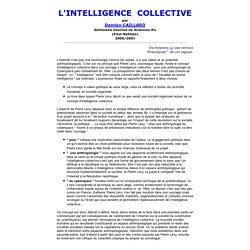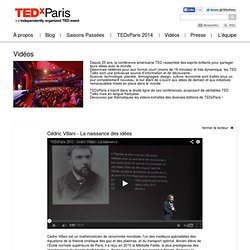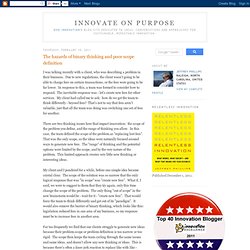

P Levy IEML.
Jane McGonigal. Francis Heylighen. Francis Paul Heylighen (born 1960) is a Belgian cyberneticist investigating the emergence and evolution of intelligent organization. He presently works as a research professor at the Vrije Universiteit Brussel, the Dutch-speaking Free University of Brussels, where he directs the transdisciplinary research group on "Evolution, Complexity and Cognition"[1][2] and the Global Brain Institute. He is best known for his work on the Principia Cybernetica Project, his model of the Internet as a Global brain, and his contributions to the theories of memetics and self-organization. Biography[edit] Francis Heylighen was born on September 27, 1960 in Vilvoorde, Belgium. Douglas Engelbart. In the early 1950s, he decided that instead of "having a steady job" (such as his position at NASA's Ames Research Center) he would focus on making the world a better place, especially through the use of computers.
Engelbart was therefore a committed, vocal proponent of the development and use of computers and computer networks to help cope with the world’s increasingly urgent and complex problems. Engelbart embedded a set of organizing principles in his lab, which he termed "bootstrapping strategy". He designed the strategy to accelerate the rate of innovation of his lab. In 1988, Engelbart and his daughter Christina launched the Bootstrap Institute (later known as The Doug Engelbart Institute) to promote his vision, especially at Stanford University; this effort did result in some DARPA funding to modernize the user interface of Augment. Why You Should Work From A Coffee Shop, Even When You Have An Office.
La Sagesse des foules. Joël de Rosnay. Swarm intelligence « Qwartz. Trois journées de conférence sur l’Intelligence Artificielle, la Physiologie et l’Art ont eu lieu à l’Université Américaine de Paris.

Le Doctorant en Intelligence Artificielle et Intelligence Collective, Mohammad Majid al-Rifaie [Goldsmiths, University of London], et le Docteur Ahmed Aber, historien de la Médecine et praticien au Royal Free Hospital in London, répondent aux questions de Federico Ruiz pour Qwartz TV. Ce premier volet du Qwartz Media Lab présente un projet qui explore l’écriture artistique de l’intelligence collective et plus précisément de l’intelligence de l’essaim. Intelligence collective et Art <p>JavaScript est requis pour lire <a hreflang="fr" type="video/mp4" href=" collective et Art</a>. L'intelligence collective.
On trouvera ici une versionPowerpoint™ de cet exposé.

L’Internet n’est pas une technologie comme les autres, il a une valeur et un potentiel anthropologiques. Caillard PPT. mOHAMMAD mAJID aL-rIFAIE. Collective Intelligence 2012. - Management de l'intelligence collective. MIT Center for Collective Intelligence. Howard Bloom. Cliff Joslyn. Cliff Joslyn, 2006. Cliff Joslyn (born 1963) is an American cognitive scientist, cyberneticist, and currently Chief Scientist for Knowledge Sciences at the Pacific Northwest National Laboratory in Seattle, Washington, USA. Biography[edit] Cliff Joslyn studied at Oberlin College and received a BA in Cognitive Science Mathematics, with High Honors in Cybernetics, in 1985.
In 1987 he continued at the State University of New York at Binghamton, where in 1989 he received an MS in Systems Science, and in 1994 under George Klir received a PhD in Systems Science with the thesis "Possibilistic Processes for Complex Systems Modeling". From 1994 to 1996 he was an NRC Research Associate at NASA Goddard Space Flight Center. Joslyn is on the editorial boards of the "International Journal of General Systems" and "Biosemiotics". In 1991 Joslyn was awarded the Sir Geoffrey Vickers' Award for Best Student Paper from the International Society for the Systems Sciences. Collective Intelligence 2014. SOL France_Cahiers09.pdf (Objet application/pdf) Steven Johnson: Where good ideas come from.
Ron Dembo. Ron S. Dembo is one of the world's leading authorities in risk management. He is also the Founder and CEO of Zerofootprint, a cleantech software and services company whose mission is to apply technology, design and risk management to the massive reduction of our environmental footprint.[1] Zerofootprint operates both in the for-profit and charitable domains through two entities, Zerofootprint Software and the Zerofootprint Foundation using shared technology. The Zerofootprint Foundation was founded in 2005 to engage communities everywhere in the battle against climate change. It pursues causes that uphold values of sustainable development, risk management, research, and advocacy. The Foundation initiatives involve government (Federal, Provincial and Municipal), educators (universities, elementary and middle schools) and other not-for-profit organizations.
Foundation for Conscious Evolution. Fer_ananda en: Inteligencia Colectiva on USTREAM: Programa sobre los diferentes aspectos de la Inteligencia colectiva. Evolución, distinciones, mapas, herr. Cédric Villani – La naissance des idées. Souleymane Coulibaly, alias Soro Solo, est un journaliste culturel originaire de Côte-d’Ivoire.

Conférence sur l'Intelligence Collective Partie 1. About. Web > Pionniers. Transitioners.
CORNU. Gustave Le Bon. Portail sur le Coaching d'Intelligence Collective. The hazards of binary thinking and poor scope definition. I was talking recently with a client, who was describing a problem in their business.

Due to new regulations, the client wasn't going to be able to charge fees on certain transactions, or the fees were going to be far lower. In response to this, a team was formed to consider how to respond. The inevitable response was - let's create new fees for other services. My client had called me to ask: how do we get the team to think differently - beyond fees? That's not to say that fees aren't valuable, just that all the team was doing was switching one set of fees for another.
There are two thinking issues here that impact innovation: the scope of the problem you define, and the range of thinking you allow. My client and I pondered for a while, before one simple idea became crystal clear. Far too frequently we find that our clients struggle to generate new ideas because their problem scope or problem definition is too narrow or too rigid.